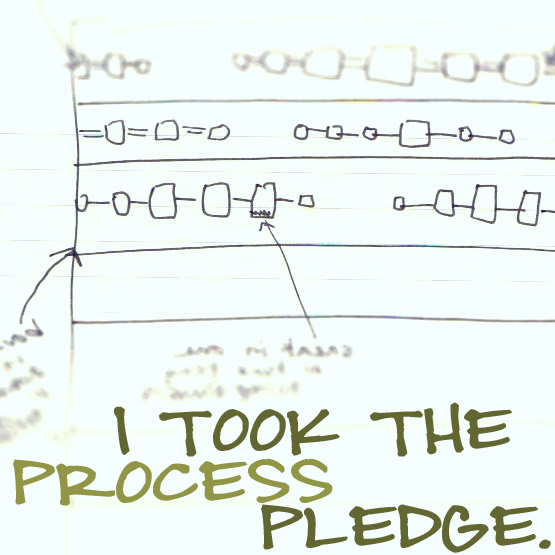the following is a blog-ified version of a paper I wrote for a class I'm taking this summer. the assignment was to discuss an example of the depiction of therapists/counselors in the media. I welcome your comments regarding the depiction of counselors in the media -- not only the one i've mentioned here but other examples as well. Cheers!
Depiction of Therapists/Psychologists
in the Television Series LOST
Part I: Libby
LOST is a television show now between its third and fourth seasons. I chose this show to discuss for this project because a) it presents several instances of characters either attending mental-health groups/facilities, or characters who are, themselves, therapists and, b) the characters who are therapists seem to be atypical of the usual depictions presented by the media.

For part one of this discussion I will focus on the character of Libby. Libby was a passenger on an airplane that crashed, stranding a group of people on a remote island. While many movies/televisions seem to use therapists/counselors as foils for other main characters, Libby seems to be a departure from this usual depiction. For example, therapist characters oftentimes seem to exist merely to enable main characters to reveal to the viewer problems or past issues in scenes where they are discussing these issues with their therapists. In such media treatments, the therapists themselves are not well-developed characters and we rarely see them outside of "active duty." This is not the case on LOST, wherein Libby is one of the main characters whose occupation is stated as "clinical psychologist." It may seem like a fine distinction but in the context of LOST, the other characters interact with Libby as a person who happens to be a psychologist, rather than interacting with her because she's a psychologist, in formal "sessions," as we might see on other shows.


It is impressive that the producers of LOST have chosen to depict a therapist in this manner. Not only because it seems less "exploitative" to the profession but in that it shows an acceptance of the mental health field as a more normalized area than in media representations past. This is a departure from the cheap stereotypical jokes about crazy people on, say, "The Bob Newhart Show," or the sensationalist hero/heroine in movies such as "Patch Adams" or "Awakenings." The character of Libby is refreshingly NOT stuffy; nor is she portrayed as a psychiatric "miracle worker." Libby presents as a normal, attractive woman who interacts with other characters, makes friends, and forms alliances that are very personal and real. (1)
When we see Libby interacting with the other characters on the show, we know what her profession is and can see that it does affect her interactions with others. We are not seeing her as a psychotherapist on the job, but rather as a woman who happens to do this as a job and brings her knowledge and experience to bear in her personal relationships. When conflict arises in a group discussion, for example, Libby is often the one who attempts to diffuse the tension and help bring a peaceful solution. She also becomes, over time, the person that people feel comfortable confiding their feelings to. To my mind, this is a fairly realistic portrayal of the way people in the mental health field just naturally bring their people skills with them in all of their personal dealings. It also hints at the fine line that a therapist must walk; offering their support as a friend while at the same time not becoming the one that everyone "dumps on." While the show does not address this as a problem for Libby, I feel that viewers are presented with enough situations of Libby in social settings that they would naturally be aware that she is having to decide when to offer her insight and when to keep mum. In one scene, for example, when Libby offers a solution to a big argument, a fellow islander retorts sarcastically, "Great plan, Moonbeam, and after that we can sing Kumbaya and do trust falls." While in yet another scene, Libby is approached by another character, who asks her to unblock her repressed memories in order to learn of her two weeks in captivity with a rival faction on the island. Libby agrees to this request, performing a hypnotic regression, which helps the other woman remember important details. So it is made apparent that while some welcome and even seek out her knowledge and skills, others are not interested and are even a bit derisive.

Perhaps the most important scenes involving Libby are the ones in which she interacts with the character of Hugo Reyes, a.k.a. "Hurley," her love interest on the show. Libby and Hurley meet and interact over the mundanities of island life, survival-style. We see them getting water, folding laundry, having lunch together. Libby seems genuinely fond of Hurley, who is popular among all of his island companions but who questions that Libby would be interested in him because of his weight issues. I felt this was an important plot line for many reasons but not the least of which is that it presents the question of whether Libby is seriously interested in Hurley for who he is, or if she is perhaps intrigued by him and interested in him mainly to "help" him. It is not an unknown occurrence (or, I should say, it's an occasional occupational hazard) for people in the mental health field to be attracted to persons who need "rescue" – thus feeding their own desire to be needed. Hurley has many wonderful traits as a person (sense of humor, earthiness, honesty, creativity) and the show included many scenes of Libby being charmed by him. At the same time, in other scenes, however, the viewers were getting an inside look at Hurley's mental issues, which were revealed, over time, to be considerable.
At any rate, as the friendship between the two characters grows, we see Libby and Hurley jogging on the beach together, and her giving him encouragement. Hurley shares with Libby that he has an eating disorder and that he would like very much to change but he doesn't know how. {Apologies for the crappy video quality! I've been trying for DAYS (unsuccessfully) to find a video screen capture program that will allow me to take clips from the DVD}
One of the most dramatic scenes between these two characters occurred when Libby found Hurley at the top of a cliff, in the grip of what I would consider a serious psychotic episode, contemplating a jump. {Again, apologies for the crappy video quality!}
Hurley: "What are you doing here?"
Libby: "What are you doing here?"
Hurley: "How'd you know where I was?"
Libby: "Jin saw you while he was fishing."
Hurley: "Ha! Jin doesn't speak English."
Libby: "Sun was with him. She translated. Hurley, what is going on?"
Hurley: "No! You're just a part of me that's scared. You don't want me to wake up. But guess what, I'm not scared."
Libby: "Okay, okay..... you're having some kind of a panic attack. I get that. But…. this isn't like you."
Hurley: "Like me? You don't know me."
Libby: "I was starting to."
Hurley: "Did you know that I'm so fat that I killed two people? And that I have an imaginary friend?"
Libby: "Hurley...please....you're going to hurt yourself..."
Hurley: "No! I'm not! Because this isn't happening! This isn't real. This isn't real life."
Libby: "Why would you say that?"
Hurley: "Because in real life no girl like you would ever like me. You remember when I said I knew you from somewhere? Well maybe it's because I made you up."
Libby: (walking up close to him) "What was the man's name who broke his leg? The day of the crash on the other side of the island?"
Hurley: "I … don't know."
Libby: "You don't know. Do you know why? Because it happened to me." (pause)
"His name was Donald and I buried him. I buried a lot of people, Hurley, so don't tell me that that wasn't real. And don't tell me you made me up. It's insulting."
Libby: (grabbing Hurley's face) "I am real. You're real. The way I feel about you, that's real." (kisses him). "And that was real."
Hurley: "Maybe you should do it one more time, just to be sure."
Libby: (smiles) "Ready to go back?"
(Hurley looks down the cliff one more time, then they walk away, holding hands.
Hurley: "You really think I can, you know, change?"
Libby: "Yeah. Yeah I do." (2)
I felt this was a very powerful scene. Her character does a very effective intervention here, managing to ground in space and time a person who is obviously in the grips of a powerful delusion. The fact that Libby is able to stay calm and intervene effectively when someone she cares for is having a fairly significant emotional episode is quite impressive. Toward the end of the scene when we get a long shot of Hurley and Libby at the end of the cliff we see that during the discussion Libby has positioned herself between Hurley and the edge of the cliff – not only protecting him but also putting herself at great risk on his behalf.

To my mind, one of the most interesting aspects of the Libby character in the television show LOST, is that we are asked to look at many aspects of what it looks like to be a therapist or counselor in a personal relationship. Or, perhaps a better way to put it is, the character of Libby presents to viewers a look at what it might look like to be in a relationship with a therapist or counselor. What does that look like? Is a therapist or counselor more likely to date someone who might not fit the stereotypical idea of attractiveness, because they are more likely to see the person's inner beauty? What happens when a therapist is in a relationship with someone and that person becomes mentally unstable? If you are friends with a therapist or counselor, is it appropriate to ask them for help or support with a mental issue? Are you more likely to ask for help from a friend that is a therapist, or are you less so? And if you are less likely to, why? The character of Libby raises all these questions for us, because we are not being presented with a stereotypical "shrink" character, or being distracted by a comedic presentation of mental illness. We are allowed to see the character of Libby as a person.
In short, I found the character of Libby to be one that was very well done, in terms of respect to the profession of counseling, and I felt that they used her character in a touching, practical way that gave viewers much food for thought. Viewers are left with the feeling that a therapist/counselor is a person who can help you in a crisis and yet not be invasive if you do not want their help. I dare say that for viewers not familiar with counselors or therapists in "real life," this show might also even take some of the mystique out of the therapist/counselor role and make potential mental health consumers less trepidatious about seeking help.

Disclaimer to persons reading this who might already be LOST fans:
Yes," a I am aware at end of Season 2?s Episode 18 (?Dave?) we see flashback once the same mental health facility in which Hurley spent time. Some have claimed Libby not actually psychologist, that this was only delusion of hers. I would point out that Libby having once been a consumer of mental health services does not mean that she could not have, in fact, been a psychologist. In fact, if she had her own breakdown and went on to recover and have a career, this is all the more reason to celebrate the character of Libby as a stereotype-buster. Of course, if you are a LOST fan reading this, you will know that there is a great possibility that any of the characters on this show are simply delusions or projections someone else has come up with. Another theory posits that Libby was one of the "Others," and her whole backstory was made up, just as the character "Ethan" pretended to be one of them but was not. Delusion, real, or "Other," my opinion stands that with the information available to us by the 3rd season, the character of Libby is a good example of a therapist/counselor depicted in the media in a practical, non-sensationalist way.
* * *
_____________________________
(1) well, as real as it can get considering it's, you know, a TV show.
(2) dialogue courtesy About.Com: LOST



















